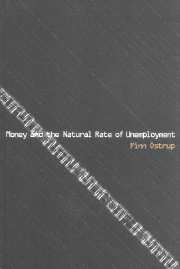Book contents
- Frontmatter
- Contents
- Preface
- Part I Introduction and main assumptions
- Part II The impact of monetary policy and inflation
- 4 Imperfect integration of securities markets
- 5 Monopolistic competition in bank markets
- 6 Utility from securities holdings
- 7 Hysteresis effects from monetary policy
- 8 The impact of inflation on bank earnings
- Part III The impact of monetary regimes
- Part IV Policy implications
- Appendix: Microeconomic foundations
- Bibliography
- Index
6 - Utility from securities holdings
Published online by Cambridge University Press: 22 September 2009
- Frontmatter
- Contents
- Preface
- Part I Introduction and main assumptions
- Part II The impact of monetary policy and inflation
- 4 Imperfect integration of securities markets
- 5 Monopolistic competition in bank markets
- 6 Utility from securities holdings
- 7 Hysteresis effects from monetary policy
- 8 The impact of inflation on bank earnings
- Part III The impact of monetary regimes
- Part IV Policy implications
- Appendix: Microeconomic foundations
- Bibliography
- Index
Summary
Introduction
This chapter examines the macroeconomic implications of substitution between money and financial assets which offer a positive return and which can be sold in a market at a short notice and at low transaction costs. Throughout the following discussion, we refer to this last category of financial assets broadly as securities. Two main reasons may be suggested why securities function as a substitute for money. First, securities can substitute for money in the case of unexpected payment needs, as securities can be sold at short notice and with low transaction costs. Second, holdings of securities enhance the possibility of using credit-based payments systems. Throughout the following discussion, we refer broadly to these uses as the liquidity services from securities. The view that both money and securities offer liquidity services is argued by Tobin (1961, 1969).
This chapter analyses a model which views both money and securities as offering utility. It is a well-known feature from many macroeconomic models that real money offers utility by reducing the time spent on financial transactions. Because both money and securities can be used to meet unexpected expenses and cover unexpected income shortfalls, and because payments can be made on the basis of securities, we treat securities as offering utility. Securities affect the amount of time spent on financial transactions.
The point of departure is a model based on full wage and price flexibility and rational expectations.
- Type
- Chapter
- Information
- Money and the Natural Rate of Unemployment , pp. 128 - 142Publisher: Cambridge University PressPrint publication year: 2000



